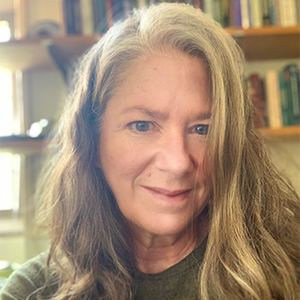Merlise A. Clyde
Merlise Clyde was born in Chicago, but her family moved to her mother’s hometown of El Dorado, Arkansas, when she was five years old. Growing up, she loved science, math, and the outdoors but really had no idea about careers in mathematics, let alone statistics, so her path to becoming a statistician was far from linear.
For college, Clyde wanted to see other parts of the country and decided to attend Oregon State University to study forestry ecology. It was at OSU she discovered statistics. She said she was fortunate to have an undergraduate research experience that involved field collection of tree growth measurements and later had the opportunity to be involved in statistical model development with the data. There was no major in statistics at OSU at that time, but she took almost every statistics course she could fit into her degree.
Clyde decided to continue with an MS in forest biometrics, where the models she was interested in developing for her thesis were based on solving differential equations, but it seemed many of the assumptions for the nonlinear regression methods used at the time were violated. Wanting to dig deeper on the statistical side, she took a slight detour to learn more mathematics and earned an MS at the University of California, Riverside, before she ultimately earned her PhD in statistics at the University of Minnesota.
For her dissertation, Clyde worked with Katherine Chaloner on Bayesian experimental design inspired by her early interest in nonlinear models. It was this research in which prior information made a critical difference that convinced her of the merits of the Bayesian paradigm.
Clyde started on the faculty at Duke University in the Institute of Statistics and Decision Sciences (now the department of statistical science) in the fall of 1993 and has been there ever since, serving as chair of the department for six years.
She is probably best known for her research in Bayesian model selection/model averaging with mixtures of g-priors (and the associated R package BAS); however, Clyde thinks her greatest accomplishment has been in Bayesian nonparametric regression using Lévy processes for Lévy adaptive regression kernels. Like many Bayesian nonparametric models, the models are extremely flexible and can capture functions in a range of function spaces. At first glance, such models are not identifiable, but Clyde has found incorporating prior information in applications can lead to more interpretable results. It is this blending of data-driven models, methodology, and theory; objective and subjective Bayes views; and computation that really excites her.


















